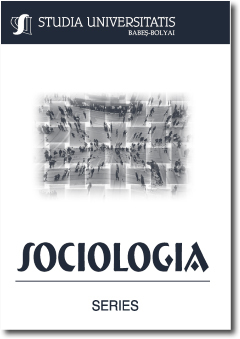MUSLIM IMMIGRATION AND ITS INFLUENCE ON THE REDEFINITION OF NATIONHOOD IN GERMANY
MUSLIM IMMIGRATION AND ITS INFLUENCE ON THE REDEFINITION OF NATIONHOOD IN GERMANY
Author(s): Katarzyna AndrejukSubject(s): Social Sciences
Published by: Studia Universitatis Babes-Bolyai
Keywords: citizenship reform; immigration; Muslim diasporas; Germany.
Summary/Abstract: The objective of my article is to describe how immigration modifies the political vision of nationhood – citizenship – basing on the example of Germany. Since the 1960s, Germany has been a land of immigration for numerous ethnic groups. The economic development and need for blue-collar workers in various sectors of German industry attracted immigrants from poorer countries of Southern Europe and Asia. Many of them came from a Muslim cultural background. The largest group of Muslim immigrants originated from Turkey; other groups included Muslims from regions of former Yugoslavia. They were supposed to stay in Germany only temporarily, and this assumption was mirrored by the name this group was given: “guest workers” (Gästarbeiters). However, in spite of the efforts made by the German government, many Muslim immigrants did not return to their countries when the period of economic prosperity was over. A second and third generation of immigrant children was born. Currently, the Turkish diaspora constitutes 80% of German Muslims; their population is estimated at 2.5 - 3 million. This forced a shift in the German policy of citizenship. Before Germany became a country of immigration, it developed an “ethnic” model of citizenship (as opposed to the “civic” French model, as described by Brubaker), which was granted to individuals with German parents (jus sanguinis). This strict model was loosened, and citizenship legislation amendment in 2000 enabled the children of Muslim immigrants to acquire German citizenship. After a decade of functioning of the new citizenship model, it has proved to contribute to a conversion from an ethnic to a multicultural and cosmopolitan community. I outline the prevailing divisions in German society: they are no longer based on citizenship, but rather on economic factors: access to employment, housing conditions and education opportunities. I also compare the development of the notions of citizenship and nationhood in Germany to the changes in other European countries, such as France and Sweden, which occurred in the same time.
Journal: Studia Universitatis Babes-Bolyai - Sociologia
- Issue Year: 58/2013
- Issue No: 1
- Page Range: 39-54
- Page Count: 16
- Language: English

